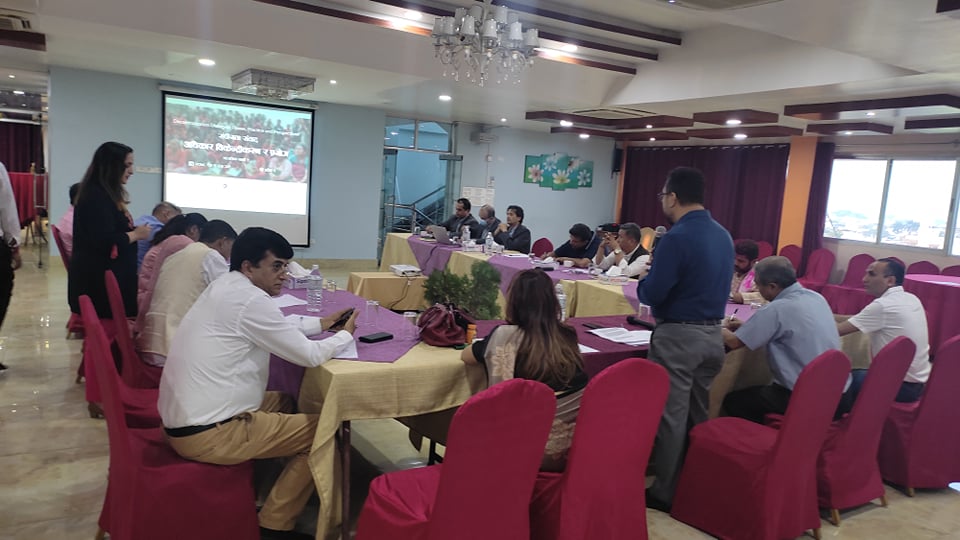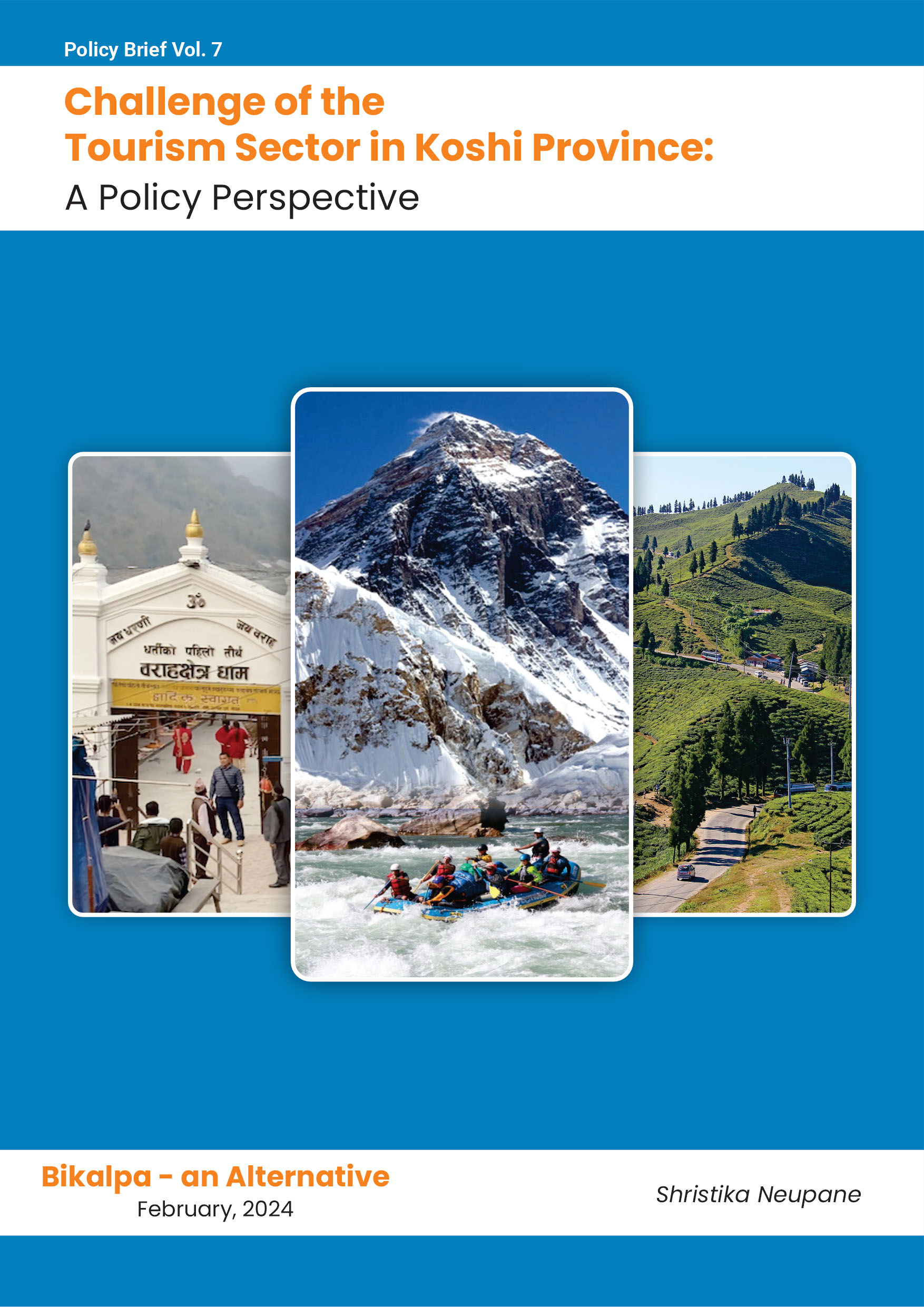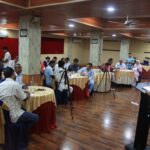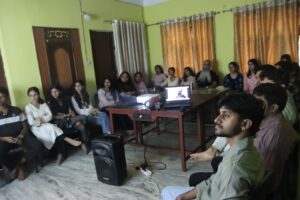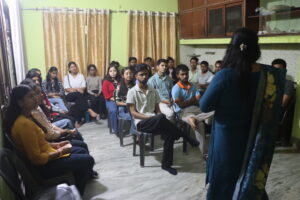Bikalpa an Alternative and Accountability Lab jointly organized Biratnagar Leaders Circle Program titled” Decentralization Dialogue: Power, Practice and Perspectives” at 15th March 2022 Biratnagar. The objective of the program was to assist sub-national governments to strengthen federalism. Also, to facilitate citizen-government involvement to promote Feedback in Government decision-making and ensure Accountability.
Honorable Minister Mr. Jayaram Yadav, Ministry of Health Provine 1, and Biratnagar Mayor Mr. Bhim Parajuli graced the event as the chief guest. Other Distinguished Stakeholders included Honorable Indra Bahadur Angbo (Economic Affairs & Planning Ministry), Suyesh Pyakurel President of Chamber of Industries Morang (CIM), Jivan Ghimire Former Minister of Social Development Province 1, Umesh Basnet Chief Administrative Officer of Biratnagar Metropolitan City, Bhim Ghimire, President Of Confederation of Nepalese Industries (CNI), Suman Dahal, Secretary (Economic Affairs & Planning Ministry), Mahesh Regmi Central Committee member (Communist Party of Nepal (Unified Marxist–Leninist) and Dik Bahadur Limbu District Chairman of Nepali Congress.
The Program was moderated by Professor and Media Personality Dr. Sandesh Das Shrestha. Former Chief Secretary of Nepal Mr. Som Lal Subedi delivered the keynote presentation at the beginning of the event.

In opening remarks of Som Lal Subedi, Former Chief Secretary Presentation He shared, In Nepal, Federalism has come from the top level to manage politics. The power at the center is divided to improve the territorial reforms and work responsibilities. Every level of government needs to think about the practical transition of federalism. Many people opine that federalism is costly and it doesn’t work. Rights have not been entirely given; staffing hasn’t matched; in such a condition, we can’t expect the full results of federalism. It is not clear who is supposed to do the leadership of federalism. The conversion of federalism has not taken place yet. Federalism has only added political opportunities. There should be a rigorous analysis of how free is the municipalities. There is no coordination between manpower and technical work. The nearest government, the local government, must be the most efficient among the three governments. The administrative, managerial and technical ability of all three governments must rise. Technical preparation should be made, and planning must be fact-based, not budget-based. It is essential to see if the budget for the priority plans and projects has been met or not. In order to exercise power and reap the rewards, capacity building from the ward to the top level is essential.
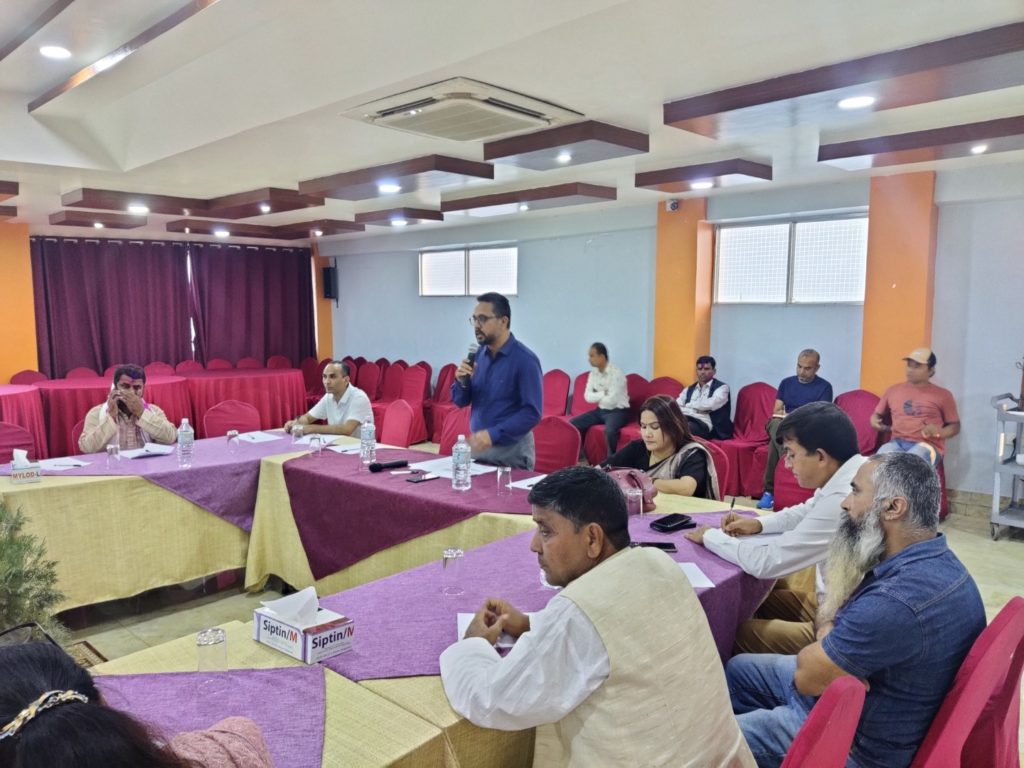
Mr, Suyesh Pyakurel President of CIM said In the current scenario, it is difficult to find a leader who has the ability to tell the public what is wrong and what is right. The explanation about the benefits of Federalism has not been disseminated among the general public. Everything is imposed on the people. The government does not organize proper discourses and dialogues with the public. There is a lack of public service delivery at the provincial government. Private sectors still need to go to the central government at times of difficulties and while they face problems in day-to-day activities. We should still go to the CDO office to submit the memorandum. Most people do not care about federalism. Our country has undergone many changes that must be made known to the general public.
Mr Bhim Parajuli , Biratnagar Mayor
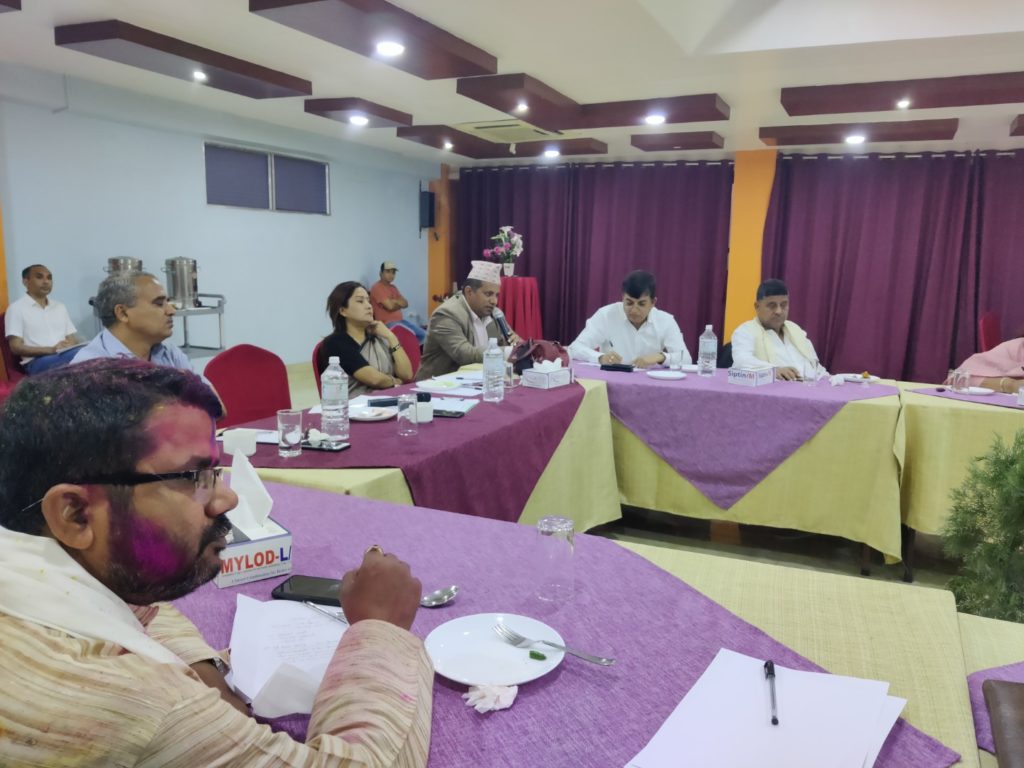
The local government has got rights but it has not been able to navigate it properly. Our laws are premade and we are only appending them now. The condition of the provincial government is miserable. The local government has not been able to consume the rights in good order. For instance, we have not been able to implement the land use act. This is not the time to conduct a debate on Federalism. It is time for the policymakers, and people in the uppermost position to implement it decently.
Mr, Jivan Ghimire, Former Minister of Social Development shared, Our constitution is excellent and democratic. Since Federalism is practiced for the first time, not all the expectations can be fulfilled at once. It is impossible to increase technical capacity, administrative, and managerial skills simultaneously as it happens gradually. The amount of attention the Central government had to pay to empower the state has not been seen. The central government keeps most of the powers to itself. The provincial government has made a lot of progress in the past 4-5 years, be it in physical development or human development. If federalism can be moved forward according to the constitution, then it is the country’s need.
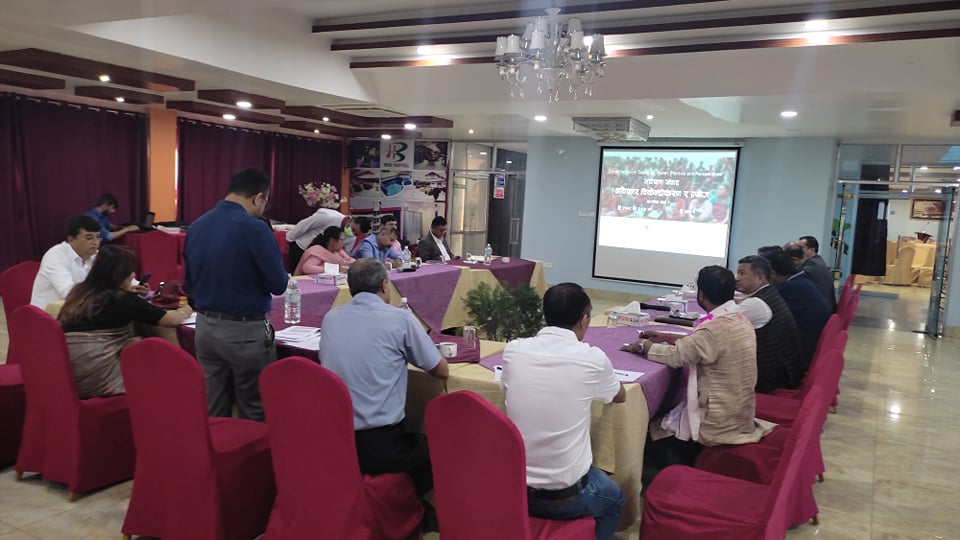
Mr, Umesh Basnet Chief Administrative Officer
The constitution clarifies three different levels of work for the central, provincial, and local governments, but it is still unclear in practice. There is duplication on the work in three tires of government. We can see the absence of coordination in the plans and projects that need improvement. The practice of good governance is not satisfactory. The local government has not been able to manage the revenue properly. There should be the development of partnership between consumer committee, civil society, and local government workers.
Bhim Ghimire President Of CNI
We have found a massive difference between the federalism we imagined and the federalism in practice now. There is a lack of coordination in the leadership of three levels of government. There is no clear definition of jurisdiction and budget allocation of local government. The excessive tax has created a burden on the private sector. Hence, the private sector has started expressing bitter experiences that federalism is unnecessary. Good governance is weaker than before, and there are abound corruptions.
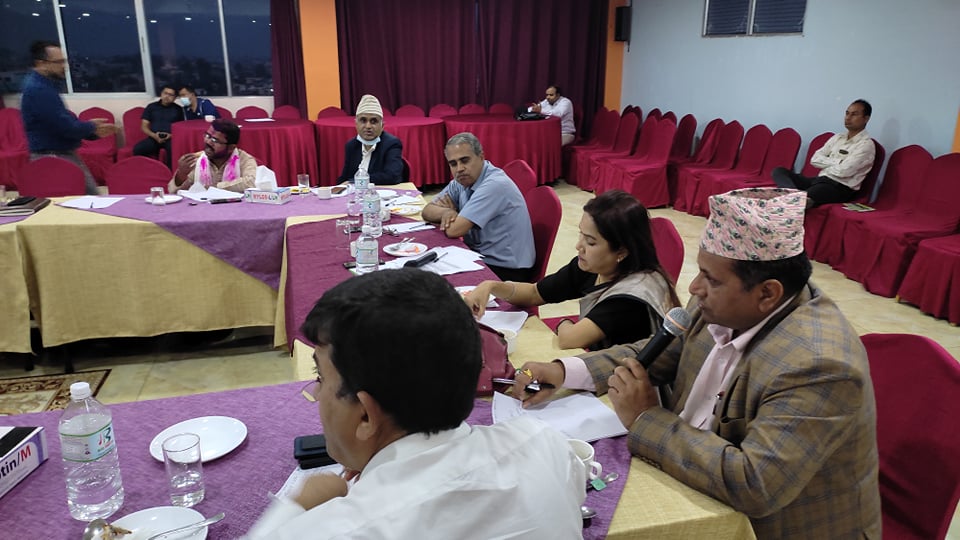
Dik Bahadur Limbu District Chairman Nepali Congress
Federalism should not be taken as a solution to all the problems. However, we cant say that it is unnecessary for us as people have sacrificed a lot for it. Federalism should be critically defined by political parties, private sectors, expertise, and all the key stakeholders.
Mahesh Regmi Central Committee member (Communist Party of Nepal)
This is not the time to question federalism. If a great crisis hits on in the country and progress, prosperity is disrupted, then only we can question it. Federalism has taken place to bring the government closer to the people. The discussion should be on how to get federalism in line with the sentiments of people. It is necessary to lead the country based on qualification, ability, honesty, and reward those who do good deeds and punish those who do wrong.
Suman Dahal Secretary (Economic Affairs & Planning Ministry) Province 1
There is less discussion about federalism in the central government. There are many issues in the human resources of local and provincial governments. Central and local government was already in the country, but the provincial government was new, so it didn’t know how to play the role properly. The provincial government has rights and resources, but it cannot implement those correctly without permission from the central government. The central government has lessened the subsidies and economic rights of the provincial government.
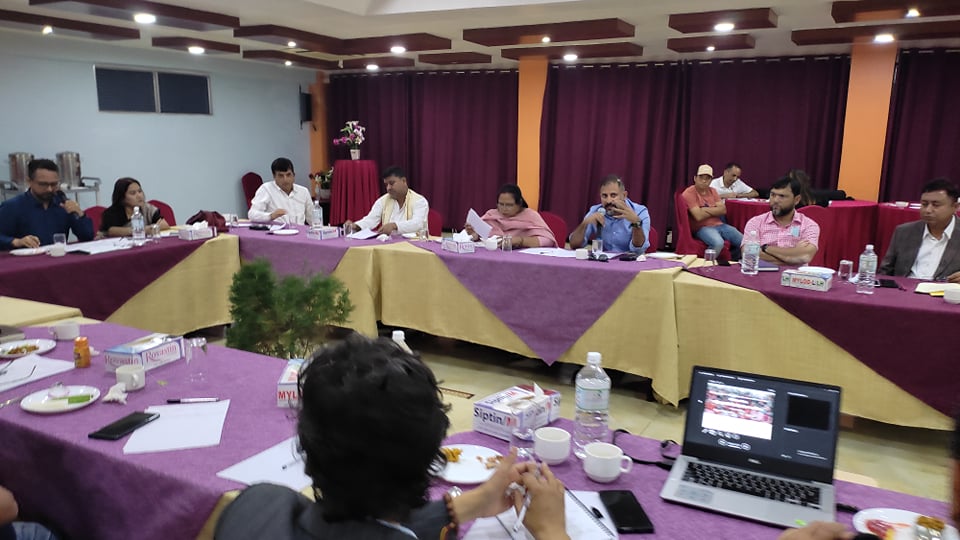
Honorable Minister Jayaram Yadav, Ministry of Health Provine 1
Federalism is for the oppressed nationality of the country. The oppressed population would have never gotten seats in the political system if federalism was not there. Those castes, religion who were never placed in a leadership position, has now can be seen in the mainstream of the state.
Honorable Indra Bahadur Angbo (Economic Affairs & Planning Ministry)
The local government has given the most rights, but it is deprived of the consumption which has generated hassles on the service delivery. The federal Civil service Act has not been enacted yet, which is creating an impact on service delivery. The entire responsibility for peace and security should be given to the provincial government, especially Nepal police adjustment. The allocation of the resources is not scientific. The financial act and Appropriation Act don’t look favorable to federalism. Most of the acts are based on a centralized mentality. Federalism is not institutionalized the way it should be. Federalism should be institutionalized and leaders should be accountable towards the citizens.
Finally, the program was concluded with a vote of thanks to all the stakeholders. The program started at 5:30 pm and ended at 8:30, followed by dinner. Altogether 21 stakeholders attended the program.

